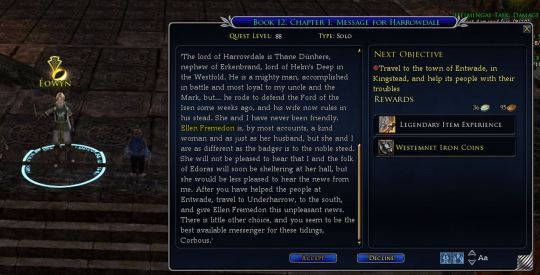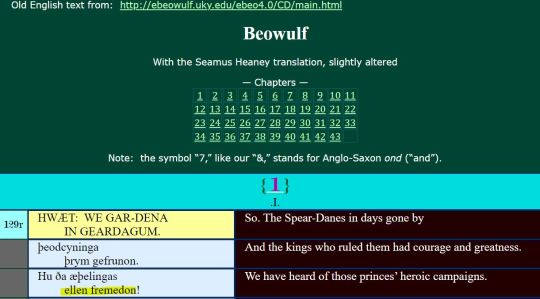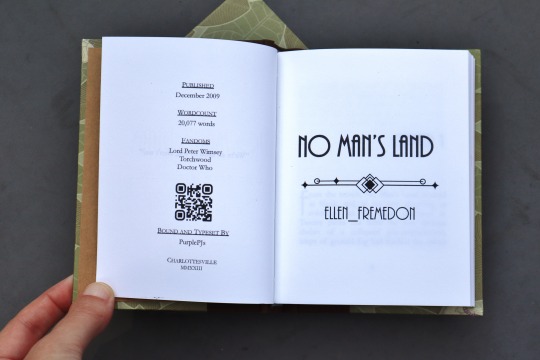#fremedon
Explore tagged Tumblr posts
Note
For the three-sentence fic meme: Combeferre and Grantaire.
"Fae are but man's wildest, purest, most hedonistic instincts: remember Snow White's iron-red shoes, Erzebet's virginal baths, Rebecca Black's parents, and recall that this is merely the seelie court's slow Tuesday; in 1896, Homer's thirst defined the law of the land until Oliver smote it down 58 years later: it is from this that we derive our understanding of 'fair folk' and their estimation of that blind, calculating lady we call Justice; if I were seated as judge on this lucky court, I would cut her bindings, slash at her blindfold, and undo her gag; alas, that steadfast and fickle foe numbers (that is to say, my GPA) held me fast from my Ivy-laden dreams of law, and I am barred from serving that most judicious duty of the land alongside my peers."
Combeferre stares at Grantaire a long beat before announcing, "I'm still checking out the lights under the hill."
"Swag, right behind you."
#yeah Grantaire is barred from jury duty#he meanders around the question if asked why and his parents are too embarassed to say#so no dice on founding out how#anyway Combeferre/Grantaire is just a long series of questionable adventures#where Grantaire pretty much has to figire out how to look out for himself because Combeferre won't do it for him#and after a while Grantaire is also doing it because he wants to help look after Combeferre too#also: visiting the unseelie court goes Very Badly#just in case you were wondering#combeferre#ferre#grantaire#the original trash gremlin#shitposting sometimes writes#combeferre/grantaire#combetaire#?#ask game#fremedon
70 notes
·
View notes
Text
I would say that in Tolkien, [...] being a metaphor is something separate from being a person--metaphor and allusion and song can shape how someone is perceived and remembered, but it's not a part of a living person's identity, in a way that it very much is for Hugo.
Oh! Yes!! Yes, that's exactly it!! It did feel wrong saying Hugo cares more about the symbolism than the characters but it was one in the morning and I couldn't figure out why so I gave up and said all the things I could put into words, but of course that's exactly what it is—being a metaphor is part of being a person, to Hugo.
And it's fascinating to me that the narrative shape of the world is so much more present, as a set of internal and external constraints that characters have to deal with, in the book more nominally set in the real world.[,] but Hugo's wisest and luckiest characters are able--and in fact the signal of wisdom and blessedness is the ability--to see the story one is living at the moment, and to use that narrative momentum.
See I'm not entirely sure I agree with this—all the examples you gave are true, of course, but I do think some of Tolkien's characters are also able to see the story they're living and to use the narrative momentum, because that's essentially what Aragorn does in The Return of the King. With him it's a trick—he knows he's not the real hero here, on some level, and that if the world is to be saved it will be by the destruction of the Ring thanks to Frodo and Sam, but he also knows that he is The Long-Lost Heir To The Throne, Returning To His Kingdom When All Hope Seemed Lost, Leading the Charge against Sauron and all that, and so he uses all of the narrative momentum around him and the weight his story would have if he were the hero, and uses it to distract Sauron long enough for the Ring to be destroyed.
It's maybe not as consistent/central a pattern in Tolkien as for Hugo, but I do think Aragorn is as aware of the story and uses his narrative momentum as adeptly as anyone in Les Mis, and I don't think he's the only one—I think it's a signal of wisdom and blessedness, as you put it, for Tolkien, too. I think Gandalf sees the story, and Galadriel, and Elrond, and Faramir, and they may use the narrative momentum in less obvious ways than Aragorn successfully distracting Sauron, but I think they're just as aware that it's there.
Meeting Tom Bombadil this morning, braced for impact, but like bro it’s fine it’s just the scop’s song from Beowulf (etc). My guy is just singing all the histories. He got to the start of the universe and the Hobbits were all :/ about it and stopped following which is annoying bc I want to know which versions he likes!!
Enjoyed Tom Bombadil vs Old Man Willow galdor battle.
I guess I should add that just bc I keep going “IS THAT— IS THAT FROM—“ doesn’t mean I think of the story as a series of straightforward references to early medieval stuff; it’s its own story from that storyworld and it’s just fun to recognise (or think I recognise) genre beats. Also I cannot shut up and I’m having the time of my life.
#like idk i can't read galadriel's ''all shall love me and despair'' speech without thinking she knows Exactly what story she is in#and also what story frodo is in#gandalf DEFINITELY knows they're in a story but unfortunately the narrative role he is stuck with is Wise Old Mentor#he's not *allowed* to use the narrative momentum for himself mostly he just has to try to talk other people into it#i don't feel like we see elrond using his own narrative momentum much either but i think he's very well aware of the story too#there's a joke that floats around tumblr sometimes#about the Council of Elrond debating the four demonstrated methods of dealing with highly dangerous magical objects#and saying the last time this story happened here's the ones that didn't work here's the one that won't now and here's the one we're using#wow i spent way more of this reply arguing with the last bit then agreeing with the rest whoops#the thing is it's easy to explain why i disagree with that part#but the rest of the post i would've just been yelling YES THIS or OH YOU'RE SO RIGHT every other sentence#anyway i'm going go to relisten to Please Stop Describing Me now#i already did last night while i was writing part of the other comment but since it's so helpfully been linked…#les mis#les miserables#victor hugo#les mis meta#lotr#lotr meta#the lord of the rings#jrr tolkien#fremedon#replies
311 notes
·
View notes
Note
Cosette + 12 + 14 :)
12. What's a headcanon you have for this character?
that she actually uses that correspondence kit, darn it! She has friends from the convent who get to know where Mlle. Fauchelevent is; they're all living far away, by the sheer chance of fate , which is fine by Valjean, and Cosette hasn't really begun to worry about it yet, but it makes her very happy to have her Letters.
14. Assign a fashion aesthetic to this character.
Goth but like. Low key/high class/ Raised by a dad who goes to funerals for Fun about it. She's not even doing it on purpose! this is just how she dresses. Less Ebony Darkness Dementia Raven Way and more Hitchhiker from the Big Party Who Will Turn Out to Have Died Ten Years Ago Tonight, except somehow her fashion is very of the moment.
#Cosette talk#listen Vugs tells us that Marius is Very Isolated#then we find out he's hanging out with multiple large groups several times a month#as fremedon pointed out#Hugo has an EXTREME extrovert's idea of what being Isolated means#so I'm entirely here for Cosette has Friends She Just Doesn't See in Person Often
17 notes
·
View notes
Text


It will never cease to amuse me that the LOTRO writers just took a snippet of Old English from the opening lines of Beowulf and made it an NPC's name in Rohan... XD
#lotro#ellen fremedon#beowulf#clever devs#this is almost as good as trimalchio->dimalchio in WOTR#come to think of it the previous book of the epic quest had a Thrymm and that is how you pronounce the þrym in the previous line...#now i need to learn old english and read more of beowulf just to be on the lookout for more of these linguistic easter eggs i guess
10 notes
·
View notes
Text

We have our schedule for Barricades 2024! Questions or comments about the schedule? Let us know! You can get in touch with us at this blog, or at our website!
Friday July 12
Track 1:
Welcome Session
The Cats of Les Miserables- Melannen
GOH Christina Soontornvat
The Yellow Passport-David Montgomery
Early Transformative Works- Psalm
Brick Readers Meetup
“Atonement”: A Theatrical Piece for 1 actor, based on Segments from Hugo’s Les Miserables.” - Alexiel de Ravenswood
Track 2
Fan Creators Meetup
Black and Pink National
Beat by Beat: A Les Mis 2012 Deconstruction-Eli
History Researchers Meetup
Saturday July 13
Track 1
GOH Jean Baptiste Hugo
Reflecting on Directing Les Mis-Cait
What Horizon: Tragedies, Time Loops, and the Hopefulness of Les Amis - Percy
Cosette: A Novel — The (Fanmade) Sequel to Les Misérables-Imiserabili
Barricades as a Tactic: How Do They Work?- Lem
Why is there a Roller Coaster in Les Mis?-Mellow
Obscure(-ish) Les Mis Adaptations To Watch-Pure Anon
Recovery: A Fanfic Live Read-Eli, Barri
Preliminary Gaieties-Rare, Percy,Barri
Track 2
The Fallibility of History in Les Misérables: A Look at Hugo’s Narrative Style-Syrup
1848 in Chile-Duncan Riley
Musical Fans Meetup
Fanfic Round Robin
Compared to Some People Grantaire is Doing Just Fine (No, Really)-Ellen Fremedon, Pilfering Apples
SUNDAY July 14
Track 1
Publishing, Podcasting & Promotion-David Mongomery, Alexiel de Ravenswood, Nemo Martin
GOH Luciano Muriel
The Unknown Light Examined-Madeleine
Revolutionary Rants: “Les Misérables” Onstage from an International Perspective-Tessa, Anne, Kaja, Marie, Apollon
Les Mis Letters: Building a Book Club-Mellow,Rachel
Closing Session & Dead Dog
Track 2
Femme/Butch: Dynamics of Gender and Attraction in Les Mis-Eléna
Lee’s Misérables: Jean Valjean, Confederate Hero-Sarah C. Maza
Musical Eponine and Grantaire in Song and Lyric Edits: Personal Research on Their Development- Ruth Kenyon
Paint & Sip-Psalm and Potato
Les Mis Singalong-Megan
92 notes
·
View notes
Text
What the fuck are you talking about???


The word never came from tailoring it came from butchering????

The word garbage sounds like it should mean clothing
#found the post guys#why are we just spreading misinformation??#why did no one think to fact check fremedon??#im glad my bs receptors went off with this one because how can someone be that wrong without blatantly making it up#also im just now realizing this post is from two years ago#but it still somehow ended up on my dash and made me really mad
33K notes
·
View notes
Note
Do you have any books or sources for learning Olde English? I want to write a medieval-based story but I don't know how to write the characters speak the language.
That depends -- when you say "Olde English" do you mean Old English, like pre-1066 English? That's pretty far from modern English and it's unlikely that readers will be able to understand it easily. If that's what you're looking for, the texts I was taught with are:
Bright's Anglo-Saxon Reader
Quirk's Old English Grammar
Sweet's Anglo-Saxon Reader
They're all from a while back -- and, as you can see, some use the now-deprecated term "Anglo-Saxon" -- so you can find older editions free in the public domain. More recent revised editions can generally be found in cheap paperback form. I believe there are some more modern textbooks that are quite good, but I haven't looked at them, and I don't know how affordable they are.
I have also consulted with Zoe (@meanderingmedievalist) on this, and she recommends Baker's Introduction to Old English, as well as the related resource Old English Aerobics:
The reason there are textbooks for this, though, is because you genuinely have to treat it as a foreign language. It's very different from modern English. As a sample, here's the beginning of Beowulf:
Hwæt! We Gardena in geardagum þeodcyninga þrym gefrunon hu ða æþelingas ellen fremedon. Oft Scyld Scefing sceaþena þreatum monegum maegþum meodosetla ofteah egsode eorle syððan aerest wearð feasceaft funden he þæs frofre gebad weox under wolcnum weorðmyndum þah oð þæt him aeghwylc þara ymbsittendra ofer hronrade hyran scolde, gomban gyldan þæt wæs god cyning.
So if you put a lot of it into a story for a modern audience, most of them will be a bit lost.
If when you say "Olde English" you mean "English that sounds archaic and medieval, but is comprehensible to a modern audience", you're probably looking for Middle English.
I don't have any direct references for learning the language there, as I was mostly taught through immersion (i.e., here's a Middle English text, read and translate it, now do another until you get a feel for it), but Zoe recommends Fulk's Introduction to Middle English, so that's a good bet if you don't want to go through that process.
However, I do think the "just read the texts" method also works fine -- especially since, if you're writing a medieval story, you'll want to read some of the literature anyway for inspiration. Here's what you can do to use that method outside of a classroom setting:
Step One: Get a Middle English text with a facing-page translation. Armitage's edition of Sir Gawain and the Green Knight is good for this. Read the Middle English text, referring to the Modern English translation on the facing page whenever you don't understand it. Do this with a pencil in hand, so you can annotate the text with definitions, translations, and notes about how the sentences work.
Step Two: Get a Middle English text for which modern translations exist. Don't get the modern translation. The Canterbury Tales works for this: it's a classic and you should be able to pick up a copy anywhere. The version on my shelves is Baugh's Chaucer's Major Poetry -- which is heavily footnoted with definitions, potentially saving some time with the dictionary -- but it doesn't really matter as long as it's in the original. Read it. Every time you don't know a word, look it up in the Middle English Dictionary (available free online, in searchable form, here) and write it down. Again, best to annotate directly on the page with a pencil. Trust me, it helps to do it that way. Once you're done, get a modern translation and check your work.
At this point, you'll probably have picked up enough of the language that you should be able to write in it to some degree, though you'll want to continue making reference to the Middle English Dictionary to make sure you're employing period-appropriate usage and spelling. If you have access to the Oxford English Dictionary (if you're at a university, you almost certainly do, otherwise check with your local library), use that to check when the words you're using originated -- the OED has that listed, and that'll keep you from accidentally dropping an 18th-century term into medieval dialogue. You can also use their Historical Thesaurus to find period-appropriate equivalents for terminology.
Optional Step Three: Keep reading more Middle English literature with the dictionary open, annotating as you go, to get additional practice. If you can get through Le Morte Darthur in the original (get the P.J.C. Field edition), I think you'll be set in terms of "writing convincing medieval prose". Not because it's particularly difficult -- it's late medieval, so the language is actually more modern than either of the texts mentioned in steps one and two -- but just because it's long, so you'll get a lot of practice working through it. As a bonus, reading Malory will familiarize you with lots of good knightly vocabulary in case that's the kind of story you want to write.
Optional Step Four: Read scholarly articles on Middle English language and literature to get a more in-depth understanding. Again, check with your local library, or if you're at a university, a university library will have a vast amount of resources on this subject you can browse through.
83 notes
·
View notes
Text
Fanbinding: No Man's Land by ellen_fremedon

No Man’s Land by @fremedon
Date Completed: July 2, 2023
Size: US Letter Quarto. 20,077 words/175 pages
Copies: 2


Another Lord Peter Whimsey fic, this time with a Dr. Who/Torchwood crossover. Lord Peter is caught up in the middle of an alien kidnapping plot and then more-or-less rescued by Captain Jack Harkness. Plots and plans, innuendo and confusion ensue.


Book three in this series of 1920s crossover fics, and third fanbinding project. Still using the same fonts, measurements, and scrapbook papers.

In progress shot with my new-to-me sad iron weight. And now continuing on with the slog through the fanbinding backlog!
25 notes
·
View notes
Text
@fremedon recently made me aware of the fact that Victor Hugo basically never refers to Valjean as just "Valjean" in Les Mis..........instead Hugo always refers to him either by his aliases OR by his full first and last name like "Jean Valjean" every single time. I didn't notice until now, but now I can't unsee it
John McJohn is one of the few characters in the story who has a first anD last name, and it's a funny rhyming set of names too, so he's gonna use it at every opportunity !
233 notes
·
View notes
Text
Happy New Year, and thank you so much to everyone who followed along with Les Mis Letters in 2023! It was amazing to see so much insightful discussion and enthusiasm on Tumblr. Book clubs (brick clubs?) always make reading more fun, and I’m excited for the next round of emails in 2024.
A special thanks to:
@dolphin1812 for brilliant exhaustive chapter-by-chapter daily meta throughout 2023!
@cliozaur for other engaging well-written daily analysis!
@pureanonofficial for lovely chapter-by-chapter daily gifsets of various adaptations, covering over half of the book!
@bobcatmoran for their daily comparisons to the Arai Manga in the early months of the readalong!
@lesmisscraper for their gifsets comparing Shoujo Cosette to the chapters in the original novel!
@pilferingapples for various fun analysis posts, and for participating in the older “Brickclubs” that helped lay the foundation of our tagging system!
@gavroche-le-moineau and other French speakers for giving insight into the pieces of the story that aren’t conveyed in the English translation!
@patron-minette for interesting background and analysis, especially analysis related to Patron-Minette!
@everyonewasabird and @fremedon for the archive of older daily Brickclub posts that helped provide more to discuss!
- and many, many others who shared art, writing, and more throughout the year! Thank you to the people who reblogged and interacted with the fandom even if you never posted, and for the people just read along. I am aware that there are a great many users that I have not mentioned in this post, particularly the people who were more active on Discord than they were on Tumblr, and I am glad for all the conversations we were able to have.
Feel free to shout out anyone you want to appreciate in the comments, and I hope you join us for the next round of daily chapters in 2024!
—mod Mellow
#les mis letters#Les mis#not chapters#I’m a very exclamation points sort of mod#(I’ve been silently reblogging stuff for a long time. but know that I reblogged them all with exclamation points in my heart)
46 notes
·
View notes
Text
Raz Reads Les Mis (XXIX)
Saint Denis - Argot


Thank you so much to @fremedon for the correction! Thankfully, while tiny Gavroche is still starving and still deserves a nice warm meal, he did buy more than 5cm of bread in the previous chapter.
I think Hugo heard me being confused about the language of Patron Minette
I had to laugh, being confused about what dialect they were speaking, turning the page, and being met with a full chapter about it
Argot is, as well as that spoken by Patron Minette, the language of misery
But it's spoken by everyone in some capacity, under different contexts
You need language to bring light, words for misery to illuminate and pull away the darkness
So while argot has bad connotations, it's still necessary
Hugo goes on another bit of exposition about society
1789 was a breath of fresh air
"The French Revolution, which is nothing more nor less than the ideal armed with the sword, started to its feet, and by the very movement, closed the door of evil and opened the door of good."
This!! How does he write like that??
Needless to say, this is another little intermission chapter that I greatly enjoyed. I'll place more trust in Hugo that he knows exactly what's going on and I'll get the information I need in due time.
#raz reads les mis#les mis#les miz#les miserables#les mis book#victor hugo#french literature#classic literature#literature#books#reading#books and reading#The Brick
8 notes
·
View notes
Text
They’re here at last!!!
I love all of Les Amis, but their introductory paragraphs have also been pretty thoroughly analyzed - @everyonewasabird and @fremedon have pretty comprehensive posts on them from previous Brickclubs. Rather than go through them individually, then, I’ll try to point out some general trends that would be relevant to Marius (given that we meet them as soon as he’s kicked out of his house, we can assume there’s a connection):
The first major issue is the legacy of the French Revolution (1789) and the Terror (1793). All of the characters we meet here (with the exception of Grantaire) are attached to the legacy of the former, but they’re divided over the latter. Enjolras, for instance, is compared to Saint-Just – a more radical figure from that time period – and with his “warlike nature” and link to the “revolutionary apocalypse,” he’s definitely more in the tradition of ‘93 than ‘89, even if he’s attached to both. Combeferre, on the other hand, fears that kind of violence, only finding it acceptable if the only alternative is for things to stay the same. Like Marius’ newfound Bonapartism, all of their ideas come out of the clash and evolution of thought after the Revolution and the French Empire under Napoleon, placing each Ami in a similar position to him as they work out their ideas. All of them, though, came to a different conclusion than Marius, prioritizing the Republic over the Empire. At the same time, they’re all distinct from each other, too, revealing the diversity in French republican thought. With his limited exposure to political ideas outside of royalism (and now, idolization of Napoleon), the myriad veins of republicanism that the Amis offer broaden up the political sphere of the novel significantly.
On top of that, they’re a group; they can learn from each other in a way that Marius hasn’t had a chance to. Even Grantaire, who claims to not believe in anything, has friends, and while he distances himself from specific ideologies, his jokes illustrate that he’s familiar with them (for example: “He sneered at all devotion in all parties, the father as well as the brother, Robespierre junior as well as Loizerolles”). Marius doesn’t have friends or people to really work through ideas with. Oddly enough, the most similar structure to this that we’ve seen so far is the royalist salon. The key difference (aside from the obvious) is the chance to learn from different perspectives, whether that’s based on variations in republicanism, in priorities (conflict vs education, the local vs the international), or both. They’re not even all defined by their politics. Courfeyrac (who easily has the most insulting character introduction in the book) is defined by his character and personality first, with his political ideas mainly being a given from his participation in this group. These variations in emphasis, then, not only show us the diversity of their views, but the varying intensities with which they hold them (as in, you could talk to Courfeyrac about something that isn’t political, but you couldn’t do that with Enjolras) and how they’re kept together in spite of their disagreements (a common goal – a Republic – and many fun and socially savvy members). All of these factors serve to give a sense of liveliness as well, contrasting sharply with the “phantoms” of the royalist salon.
Les Amis aren’t very diverse class-wise, but they’re still better than the salon. Bahorel and Feuilly, at least, aren’t bourgeois or aristocrats.
Feuilly also brings us to the international level, far beyond Marius’ early attempts at imagining himself as part of a country. Focusing on the partition of Poland in particular, Feuilly advocates for national self-determination in all lands under imperial rule. The idea that a people should govern themselves was key to republican thought more broadly in that time (nationalism really took shape in the 18th-19th centuries), but to Feuilly, this isn’t just an issue of nationalism, but of tyranny:
“There has not been a despot, nor a traitor for nearly a century back, who has not signed, approved, counter-signed, and copied, ne variatur, the partition of Poland.”
The word “despot” ties this back to France in a way, with his rejection of despotism as it affects Poland possibly implying a similar anger at the same phenomenon in France. The Bourbons at the Congress of Vienna in 1815 were, after all, the same Bourbons who ruled during the Restoration. A quick note on Lesgle: I didn’t get the joke around “Bossuet” the first time I read this book. Then, I had to take a class on the French monarchy, and I was assigned a text by Bossuet of Meaux, court preacher to Louis XIV and fierce proponent of absolutism. His name seemed familiar, but it took me a while to think to check Les Mis? And now I think calling Lesgle Bossuet because he’s Lesgle (like l’aigle=eagle) of Meaux is one of the funniest jokes in this book.
#Les mis letters#lm 3.4.1#les amis de l'abc#enjolras#combeferre#courfeyrac#feuilly#grantaire#Bahorel#Lesgle#bossuet#this ended up being much less organized than I’d hoped#But that’s OK because they’re here and now we can all talk about them!!
76 notes
·
View notes
Text
Last Line Challenge
Tagged by @orbitalmirror! <3 Rules: In a new post, show the last line you wrote (or drew) and tag as many people as there are words (or as many as you feel like).
This is a snippet from one of my QuinObi week pieces (me, typing them fighting with tears in my eyes)
Obi-Wan's cheeks burn red. That dark storm that Quin has under control brews wild in his chest. He craves the man in front of him and the light always trailing at his heels.
“Oh yes,” Obi-Wan seethes with more sarcasm than should fit in anyone’s body, “you sound so very like yourself. Nothing’s wrong at all. I have no idea why I’m here.”
Despite the harsh words, grief beats in Obi-Wan's Force presence. Quin put that grief there, but there’s nothing, nothing he can do about it now.
He has to do what he’s doing. To find Sidious, he must. Obi-Wan will understand after it's over. He always does.
“Obi-Wan, go. Leave. Before you get hurt and/or blow my cover. I mean it.”
“No," Obi-Wan says with a gentle anger that makes Quin want to burst into tears. "I will not go without you. And if you think I--”
Quinlan closes the small gap between them. He fists his hand into Obi-Wan's shirt and kisses him full on the mouth. Obi-Wan returns the kiss with that sharp-sweet tang that is as familiar to Quin as his own reflection in the mirror. Obi-Wan pulls away. His eyes narrow again in the low light of the ship’s entryway, and he exhales a tender breath.
And he kisses Quin again.
I'll no-pressure tag a few folks! @tired-bshocked, @palfriendpatine66, @amarguerite, @clearbluewaters, @phoenixflames12, @fremedon
#QuinObi#My fic#Quinlan Vos#Obi-Wan Kenobi#Me: has this idea about a time when Quin was slipping into the dark that would be angsty#Me: is in pain
9 notes
·
View notes
Text
Every since @fremedon and @everyonewasabird suggested it, every time I read this chapter I'm just more convinced that ., you know...
Javert's bosses sent him to die, right? They sent him out to be Acceptable Losses.
This guy CANNOT lie and also won't . He may currently allow their fun corruption schemes but he doesn't play along. He's not Clever enough to play the politics they want him to play and he's not tuned out enough to miss what's going on. He's definitely loyal enough to just say nothing forever , but who can know that for sure from the outside?
So they sent the Worst Liar In the World to be their spy. If he gets info, hey, useful and good. If he doesn't....

the fact that after he escapes the barricade--after he's been out in combat duty, without sleep or food, for days-- they send him right back out on patrol? It's obvious that of course they don't Care about him, certainly not the way the Amis care about Prouvaire , but... I think they actively don't want him back.
#Javert talk#death talk#if the Amis are naive about anything it's this#thinking that Javert's superiors would even try to defend him#would put forth an ounce of the energy they would when it's one of their number#Javert KNOWS they won't . he wouldn't want them to#Area Man Has Issues#LM 4.12.7
244 notes
·
View notes
Photo


LES MIS LETTERS IN ADAPTATION - What is Met with on the Way from Nivelles, LM 2.1.1 (Waterloo - Abba, 1974)
The traveller straightened himself up. He walked on a few paces, and went off to look over the tops of the hedges. On the horizon through the trees, he perceived a sort of little elevation, and on this elevation something which at that distance resembled a lion.
He was on the battle-field of Waterloo.
Okay, you got me, this isn’t really a Les Mis adaptation. :P Blame @fremedon for this
#Les Mis#Les Mis Letters#Les Mis Letters in Adaptation#pureanonedits#Les Miserables#ABBA#Waterloo#flashing gif cw#flashing gif#flashing
146 notes
·
View notes
Text
Not only are Ishmael's digressions catching, but so is his "and another thing"--which is to say that my prior post about "Cetology" overlooked the narrative effect of Ishmael's classification system.
Which is an interestingly mixed bag! On one hand, Ishmael is continuing his frenetic effort to establish himself as an authority--though a deliberately unreliable one based on what was actually known by Melville (e.g., other whales had been observed to be larger than sperm whales), and also one that rejects scientific theorizing in favor of lived experience, which has its pluses and minuses to a present-day eye, to put it mildly.
On the other, this chapter is also, as rydra_wong on DW puts it, "post-modernism before modernism": "WHAT EVEN ARE SYSTEMS OF CLASSIFICATION, HOW DO WE ATTEMPT TO COMPREHEND THE VAST AND INCOMPREHENSIBLE WORLD, ARE TRUE SYSTEMS NECESSARILY INCOMPLETE AND BROKEN."
See also: @fremedon's pastiche, which is not only perfect in its voice, but recognizes how Ishmael sees whales as a resource to be exploited, beings with personalities, and of course symbols, all at the same time.
There's a lot happening here, is what I'm saying.
78 notes
·
View notes